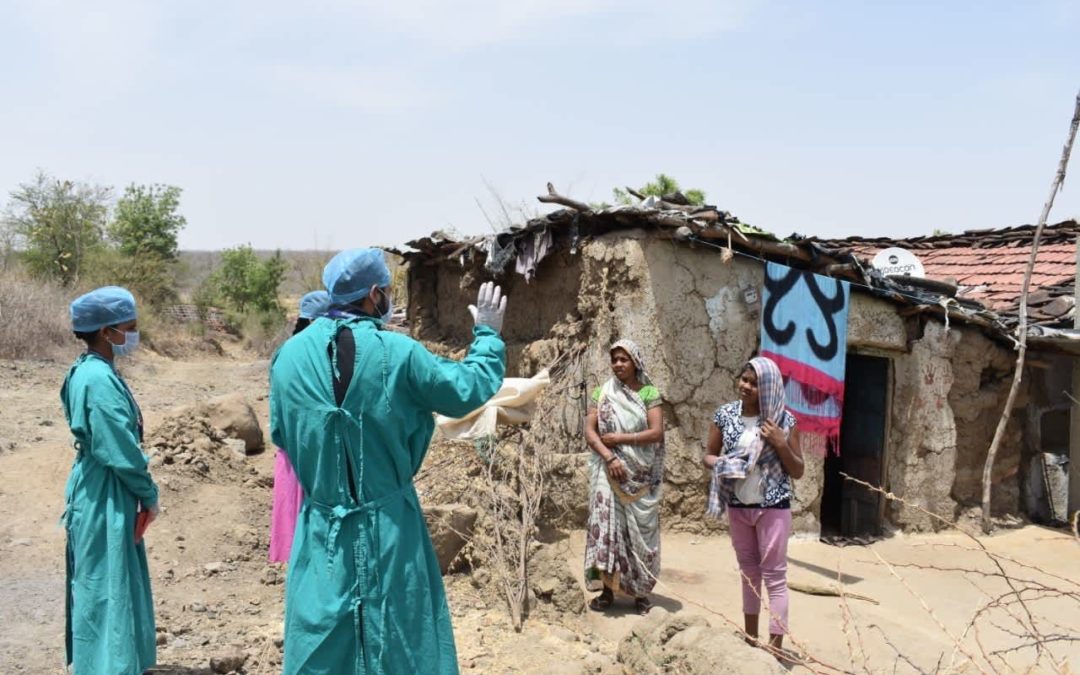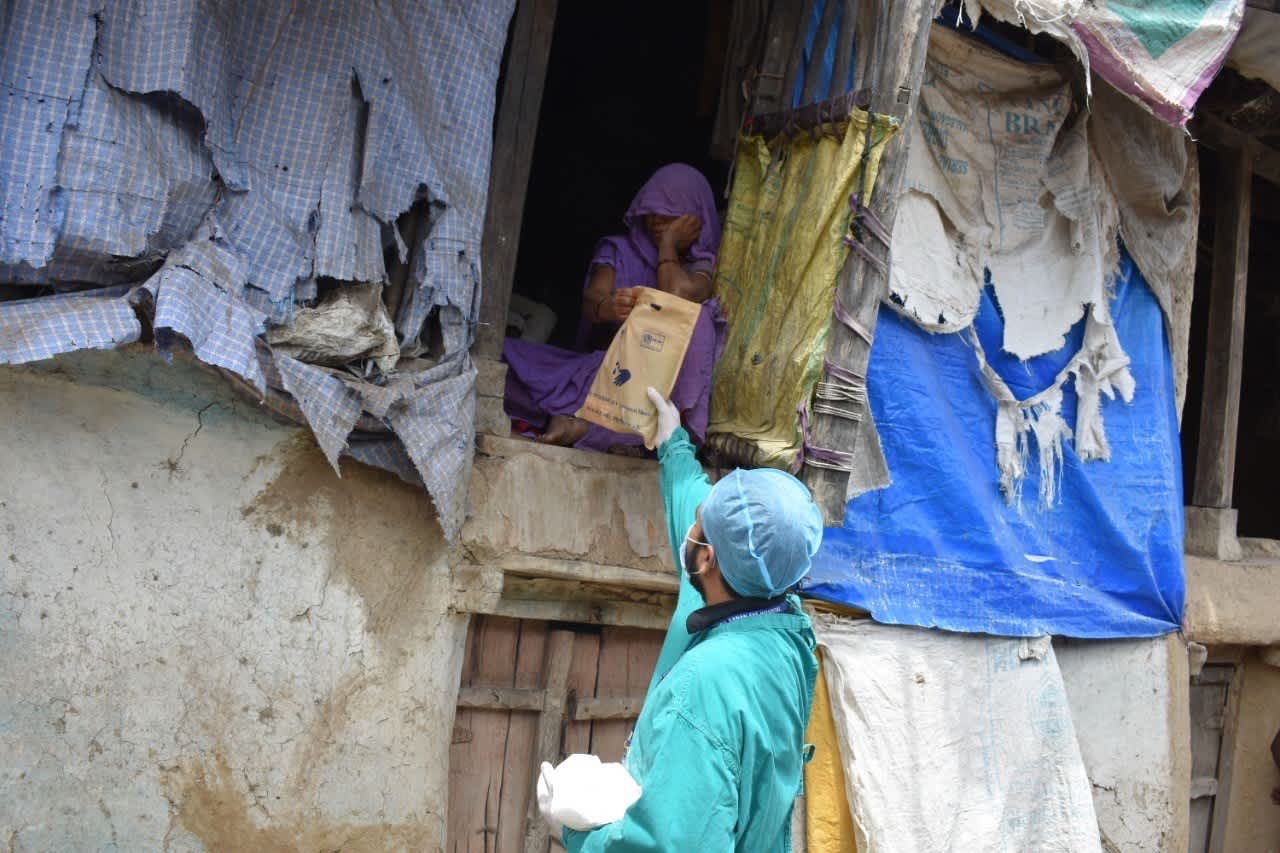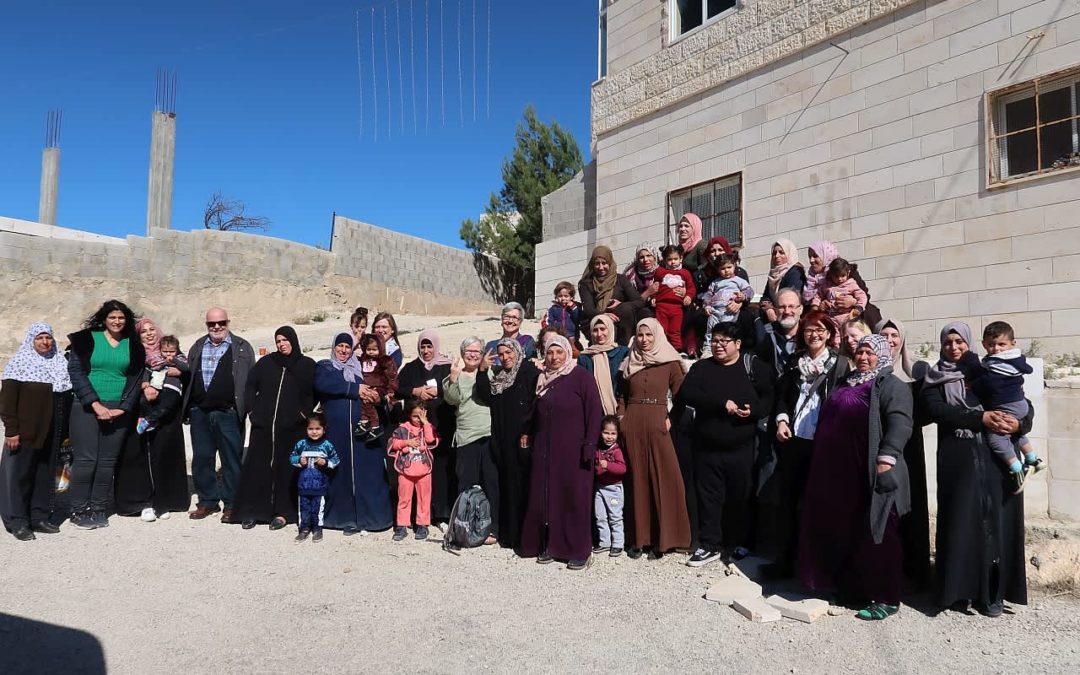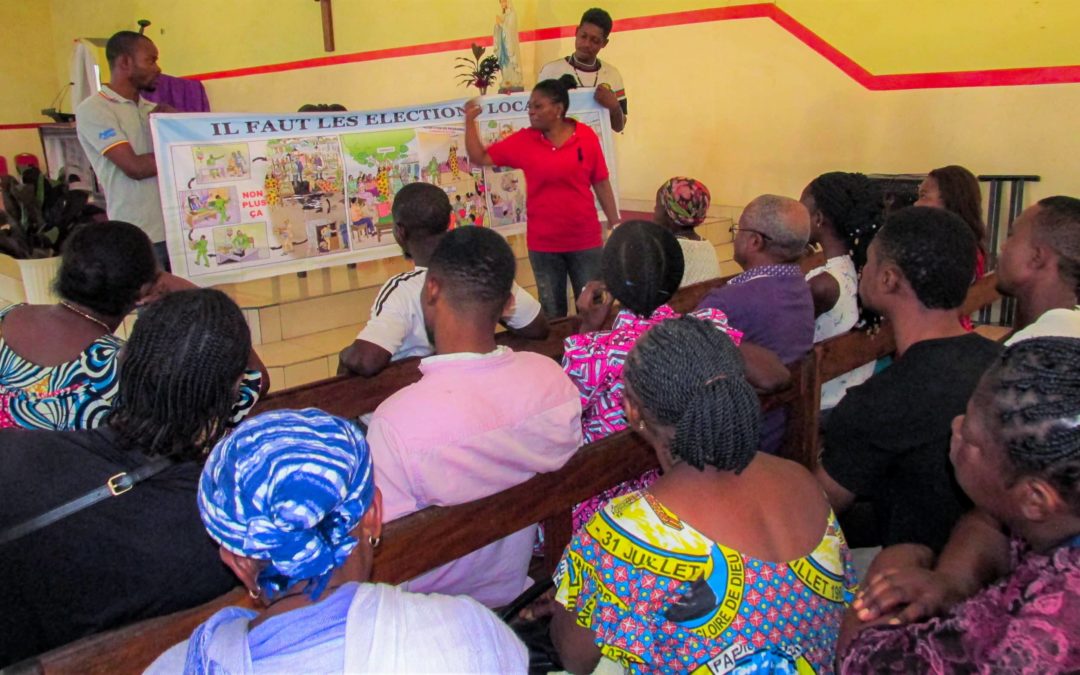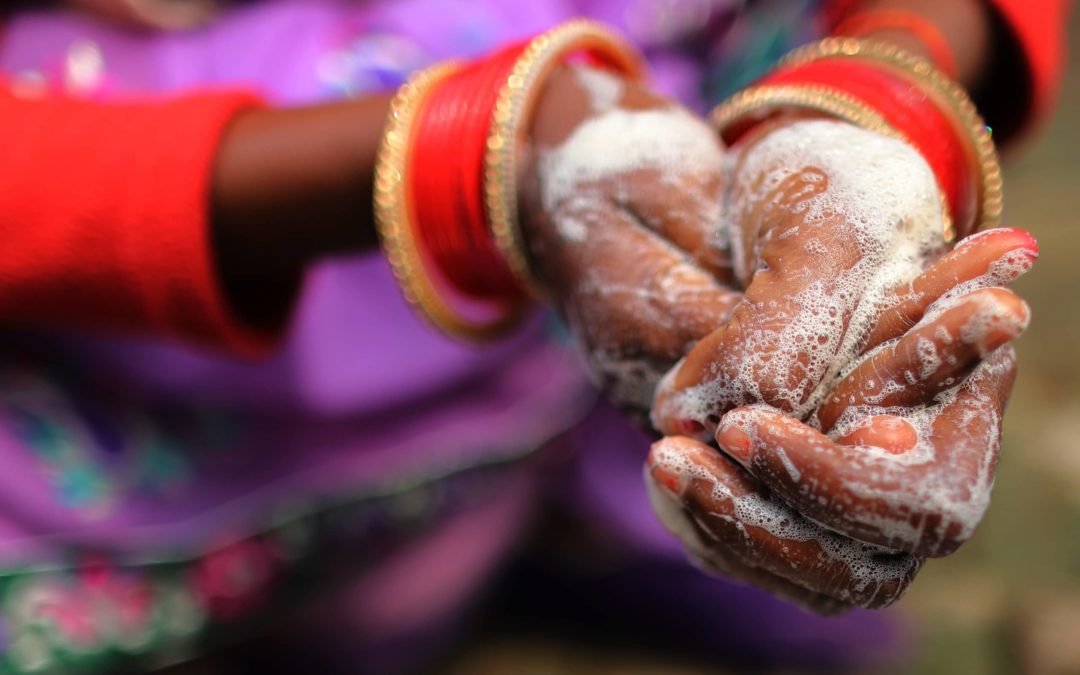
Promote, improve, inspire: WaterAid Canada’s response to COVID-19
While water and soap are considered basic household items in Canada, for many around the world it is normal to live without them. Data shows that 40% of households worldwide do not have handwashing facilities. As a result, handwashing is not a widespread practice, which heightens the risk of spreading illnesses, including COVID-19. Although recent figures show that the pandemic has not yet affected low and middle-income countries to the extent that it has affected high-income countries, concern is growing about the effects of the pandemic in countries that have fewer resources to tackle the crisis. Low and middle-income countries often have restricted access to water, sanitation and hygiene (WASH) services, and many healthcare facilities are ill-equipped to deal with the scale of COVID-19. Limiting the spread of COVID-19 in these countries, and preventing its devastating impacts, has never been as urgent.
To support the urgent need for WASH, CCIC member WaterAid Canada has channelled its expertise and knowledge to scale up efforts to promote hygiene, improve WASH facilities and inspire lasting behaviour changes to fight the pandemic.
“WASH, a no regrets intervention”
WaterAid Canada in the time of COVID-19
WaterAid Canada has always promoted good handwashing practices as part of its ongoing WASH programming. While COVID-19 has not changed the organization’s priorities, its impact objectives have expanded significantly. WaterAid Canada’s work is centered around four main objectives to reflect the urgency of the pandemic:
- Access to water for basic handwashing and cleanliness – providing essentials like soap, hand sanitizer and disinfectant to the most vulnerable people;
- Support for service providers – ensuring service maintenance with minimal disruptions;
- Reduction of COVID-19 transmission at communal water facilities – installation of handwashing stations in healthcare facilities, densely populated public areas and in rural locations; and
- Advocacy – campaigning to governments and authorities for continued, sustained and inclusive delivery of water and hygiene services, during and after the pandemic.
With its 37 years of experience and as a global leader in hygiene promotion, WaterAid Canada is working to support national governments and local civil society organizations to promote hygiene behaviours that will prevent the spread of the virus. WaterAid Canada teams are observing restrictions and assisting partners to ensure that their work does not endanger anyone or contribute to the spread of the virus. In many cases, the organization connects with other WASH agencies to coordinate joint efforts aligned with World Health Organization WASH recommendations. Currently, work is underway in urban and peri-urban areas, with the goal of reaching rural areas soon. The organization is also assisting in the design of hygiene promotion materials that will be disseminated through large media campaigns and amplified in areas that are more at risk than others. Materials intend to familiarize at-risk populations with WHO recommended practices that will prevent the spread of COVID-19.
WaterAid Canada understands tackling an invisible enemy, like COVID-19, is not an overnight endeavour. In an effort to scale-up its day-to-day operations to respond to the threat, it has developed a two-phase response that includes curbing the spread of the virus through hygiene promotion, and support for governments and key decision-makers followed by a reassessment and long-term planning. Limiting the spread of COVID-19 is not an endeavour WaterAid Canada can confront alone – a pandemic of this sort requires prevention, protection and curative interventions from all WASH sector agencies. As such, WaterAid has put together a comprehensive list of 11 contributions the WASH sector can make in responding to the pandemic, in addition to response dos and don’ts for the sector.
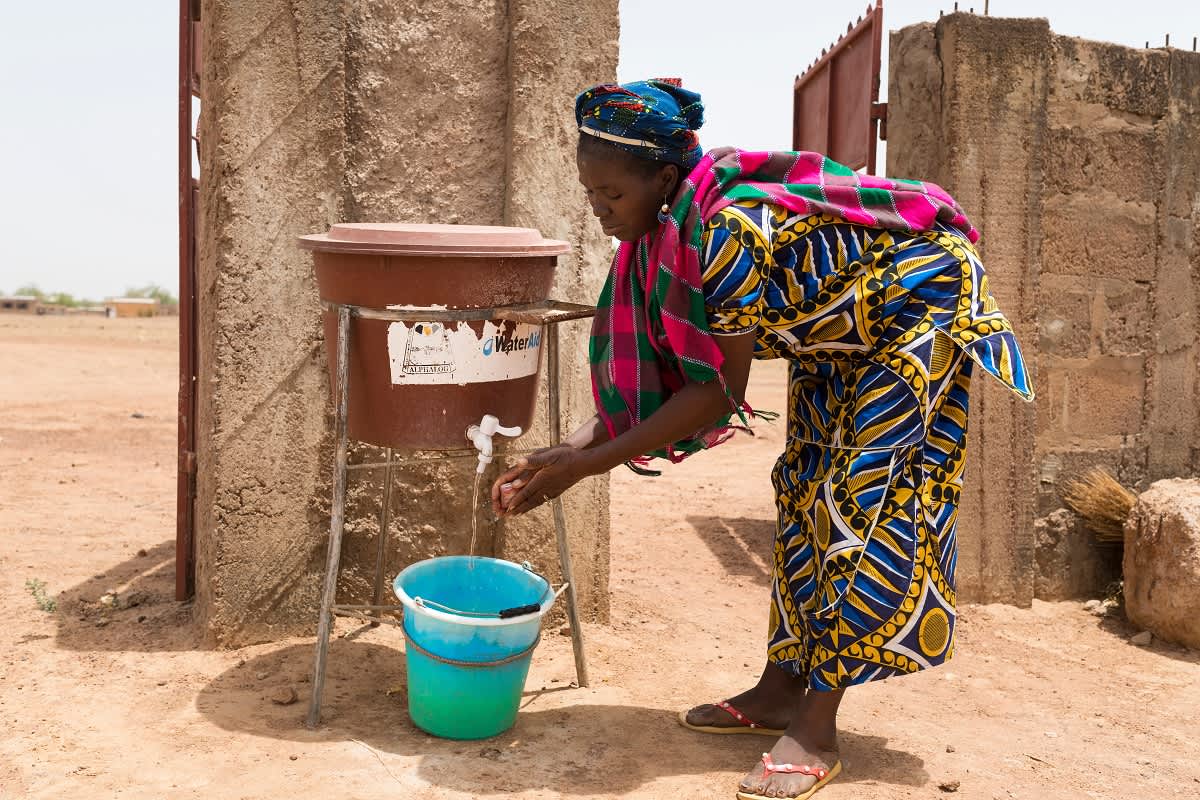
Fatoumata Sogoba washes her hands after visiting the health centre for an antenatal consultation, at Diaramana Health Centre, Cercle de Bla, Segou Region, Mali. April 2018. (WaterAid/ Guilhem Alandry)
A well-equipped sector is a sustainable sector
It has become apparent that the impacts of COVID-19 will be long and profound, and the reality that awaits us, and more importantly, the most marginalized, is unknown. Safe access to clean water, appropriate sanitation, good hygiene and basic healthcare during a pandemic is crucial. WaterAid Canada has harnessed its expertise, shifted operations, and widened its reach to take on this crisis.
The need for proper WASH practice and facilities in this crisis is vital but the sector also requires long term solutions. WaterAid Canada is committed to protecting the most marginalized from the immediate crisis, while also equipping the WASH sector with human rights-based solutions that will have long-term impacts. Having the resources to prevent future outbreaks and support basic human dignity should be normal, for everyone, everywhere.
*By Arianna Abdelnaiem, Research Assistant at the Canadian Council for International Co-operation (CCIC).
* This blog is the fourth in a new series by CCIC that showcases leadership and innovation in Canada’s international development and humanitarian sector to the COVID-19 pandemic. CCIC will continue to showcase the stories of solidarity, resilience and innovation from our sector in the coming weeks. We may be physically distant, but our members are more connected than ever in their efforts to combat the impacts of our shared global challenge with strength, humility and grace.
Featured photo: Sashi, a Chikankari worker is pictured washing her hands before she cooks meals for her family in Sadamau, on the outskirts of Lucknow, Uttar Pradesh, India on 20 December 2019. (WaterAid/ Anindito Mukherjee)

